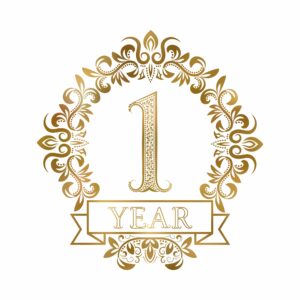Reflecting on One Year of Information Matters
Reflecting on One Year of Information Matters
Chirag Shah, University of Washington
A year ago, I wrote my first editorial for Information Matters, titled “Rethinking about Information—Semi-sesquicentennial Later” In case you are wondering, ‘semi-sesquicentennial’ refers to 75 years (don’t worry, I had to look that up too!) of various historically significant events that guide today’s information science and technology. These include ENIAC, groundbreaking works of Shannon, Bush, and Turing, and even the formation of the United Nations. These developments that started from mid-1940s (around the time the World War II ended) have forever altered the world we live in. Many of us — from baby boomers to Generation Z — were born after that time. And therefore, we have only known the world with these ideas of science, technology, and the world order embedded in it. Such realities often make it hard for us to be reflective. After all, how can you honestly answer the question about how these things have changed the world if you have never seen a world without them?
But a year ago as we started working on Information Matters, I dared us to do that — reflect on what a few ideas and people did to the information technology landscape that we see today. In the months that followed, Information Matters brought in a flood of distinguished authors and their contributions that kept providing more answers to that reflective question, while also pushing the envelope a little bit more every time. I want to take this time to reflect on some of these people and posts and encourage you to check them out.
—A year later now, I'm looking back at what Information Matters has been able to do to push the envelop with ideas, opinions, and outcomes for charting a new era of information that matters.—
One of the earliest and my favorite pieces of works is by a good friend Jeremy Pickens titled “Dancing through the Digital Landscape: Friction, Control, and the Need for Information Proprioception“, in which he talks about how important it is to have some amount of ‘friction’ while accessing information to create proprioception (I still have difficulty pronouncing it correctly!). This is a very important and often neglected idea as we build systems with the aim to reduce workload for users and even have the work completely disappear. While it may seem like a good use of technology, we must pause and examine the value of having that little bit of ‘friction’ that allows one to learn and value what they are receiving. I believe in this so much that a couple of editorials I wrote then focused on the dangers of having free and easy information. See True Cost of Free Search and Algorithmic Information Access is the New Smoking.
But we are not limited to thinking about information in the traditional sense. Two of my favorite scholars and authors Maria Bonn and Michael Twidale brought us the idea of information connected to food in their two-part piece called “Informated Food“. In them, they talk about how in WWII era, associating labels, numbers, and even stories with food became an increasingly common practice and how information enhances the food, and vice versa. This is a great example of the kind of reach that Information Matters has in its scope. Where else would you publish and read such an interesting, creative post?

Speaking of unique content while covering the history of information science and technology, you should check out INFideos (Informational Videos) series created by Jenna Hartel that uses her unique narrative style with videos and animations to explain basic concepts in the field (great for students) while providing an easy access to established theories and models (great for scholars and practitioners). But that’s not all. If you want to learn about the people behind those groundbreaking ideas and what are their visions for the future of this field, you can check out our InfoFire podcast, created by Shalini Urs.
There is quite a bit more if you explore Information Matters now or if you have been our regular reader, but one thing is for sure — just like the way the field has constantly kept evolving in these 75 years, we are going to keep evolving and innovating. And while doing so, we are also not afraid to question the status quo. For instance, several of our authors have posted about the rise and dangers of AI. See “Is AI the Future of Research“, “AI: What are We Trying to Achieve?“, “Different Flavors of AI: The Next Cognitive Revolution?“, “Toward Responsible AI“, and “Sentient AI — Is That What We Really Want?“
I wonder what Turing, Shannon, or Bush would think of these ideas, but I hope they could see that we are building on their legacy while also creating our own. More than what these people from decades ago would think of us and our ideas now, I am interested in thinking about what someone 75 years down from now will think about us and what we are doing now. Would someone then write a post to reflect on semi-sesquicentennial time before them and realize how impactful those idea about AI and other areas were from 2020-2022, the time of ‘the great pandemic’? Would they laugh at our naiveté? Or would they thank us for starting a new thought revolution? As they say, only time will tell. But for now, I feel like I want to go back to these great authors and articles here on Information Matters. Perhaps a great new idea is lurking in there somewhere. Want to join me in this (re-)exploration?
Cite this article in APA as: Shah, C. (2022, August 4). Reflecting on one year of information matters. Information Matters, Vol. 2, Issue 8. https://informationmatters.org/2022/08/reflecting-on-one-year-of-information-matters/






